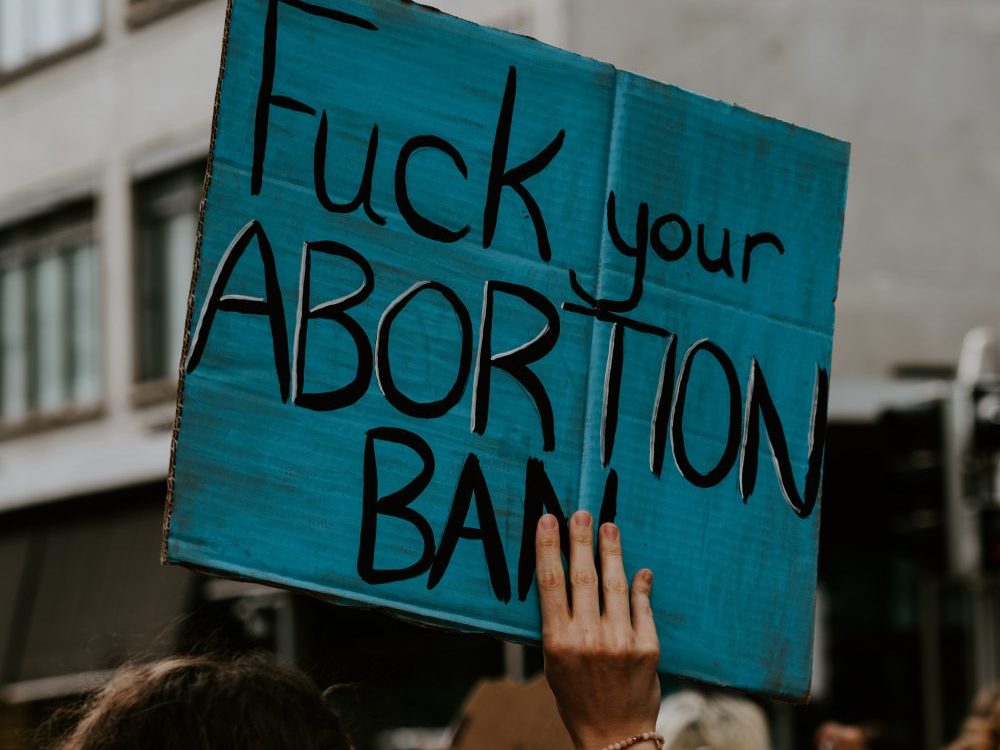In these confusing and uncertain times, we take our reasons to be cheerful where we can find them.
Recently, we’ve been allowing ourselves a wry smile as concerns long derided as mere women’s issues – access to home working, recognition of the vitality of low-paid workers, the absolute impossibility of caring for small children while working from home – suddenly found themselves acknowledged as legitimate by the men folk.
And it was in this frame that we welcomed the announcement on Monday that the government was to relax the rules around early-term abortion in the UK, allowing women to take both pills required for a termination at home without the need to visit a medical surgery. Sure, it was about protecting precious NHS resources rather than seeing the light over women’s control over their own bodies. But as I said – we take our wins where we can right now.
Imagine then, the confusion, when the UK government approved telemedicine and nurse referral for access to abortion during the lockdown, only to withdraw it mere hours later with a vague ‘nothing to see here’.

The U-Turn, and the government’s silence since, might have the air of error. But this wasn’t a mistake. Health Secretary Matt Hancock had written a letter to the those who had been campaigning for this very change, confirming its implementation, before the row back.
Without an amendment to the need for two doctor’s signatures and in-person appointments, 44,000 abortions risk being delayed in England and Wales over the next 13 weeks, cried the British Pregnancy Advice Service (BPAS), which had written to the Health Secretary calling for change alongside the Royal College of Obstetricians, the Royal College of Midwives and others.
“In the current circumstances, with Covid-19 meaning doctors are self-isolating or off sick and the NHS under immense pressure, it wastes valuable time, puts everyone at greater risk of spreading or contracting coronavirus and risks our ability to provide abortion care at all,” they warned. And then success. And then a U-turn. And then silence.
Cue outrage
“Shocking behaviour from @MattHancock claiming government has no plans to change regulations,” tweeted MP Stella Creasey amid the confusion. “Given his department published these regulations and then withdrew them last night that’s clearly not true.”
“I will get in my goddamn car and sit on the desk of ministers in charge of abortion care,” raged MP Jess Philips. “Why won’t they listen to the clinicians?”
They channelled their ire into urging women to write to their MPs, calling for changes to abortion provision to be added the emergency Coronavirus Bill as a matter of urgency. At the time, there were just 12 hours left to amend the bill. Time has now run out. It passed last night and will return to the Lords later today.
The bill stretches to 73 pages. To 87 clauses. It is a draconican, if necessary, clamp down on civil liberties, and gives sufficient recognition to the pressure on our NHS to reduce the number of doctors required to verify someone’s mental health capacity. To section or detain someone. To discharge those with social care needs from hospital or prison.
Number of times it mentions abortion? Zero.
Global erosion of rights
This is not just a UK problem. Across in the USA, women have been tearing their hair out at the use of the Covid-19 threat to erode women’s rights to an abortion.
On Monday, Texas became the latest state to halt termination procedures, citing protection of healthcare resources. Ohio had already done so.
“We must work together as Texans to stop the spread of COVID-19 and ensure that our health care professionals and facilities have all the resources they need to fight the virus at this time,” said Texas Attorney General Ken Paxton. “No one is exempt from the governor’s executive order on medically unnecessary surgeries and procedures, including abortion providers. Those who violate the governor’s order will be met with the full force of the law.”
The surgical shutdown, which lumps terminations in with “dermatological, ophthalmological, and dental procedures”, risks leaving thousands of women without access to abortion at a time when their jobs, their income and even their housing could potentially be put under threat by the escalating impact of Covid-19.
The blanket disregard for abortion as a “medically-unecessary” or “elective” procedure is to completely miss the point. This isn’t about whether women will die while waiting for an abortion. It is about the fact that, by the time this emergency is over, many will be too late to access an abortion at all.
As a society, we are being told right now that we need to act together. To work as one to protect our most vulnerable.
But by forcing pregnancy onto women who are already, unsurprisingly, feeling vulnerable, we put their lives and their wellbeing at risk. How many will seek abortion by non-legal means? How many will take drastic action themselves at home? How many will end up needing emergency care because we lacked the courage to implement change as a medical necessity, viewing abortion as a moral quandary instead?
We will stay at home. We understand why our civil liberties, our hard-fought for freedoms, need to be curtailed at this time. But to those in charge on both sides of the Atlantic, we say this. Do not use this time of international crisis to hide from your responsibility to protect women’s rights. Do not expect us to sit idly by and watch as you do.
This is not the time. And we will not forget.









